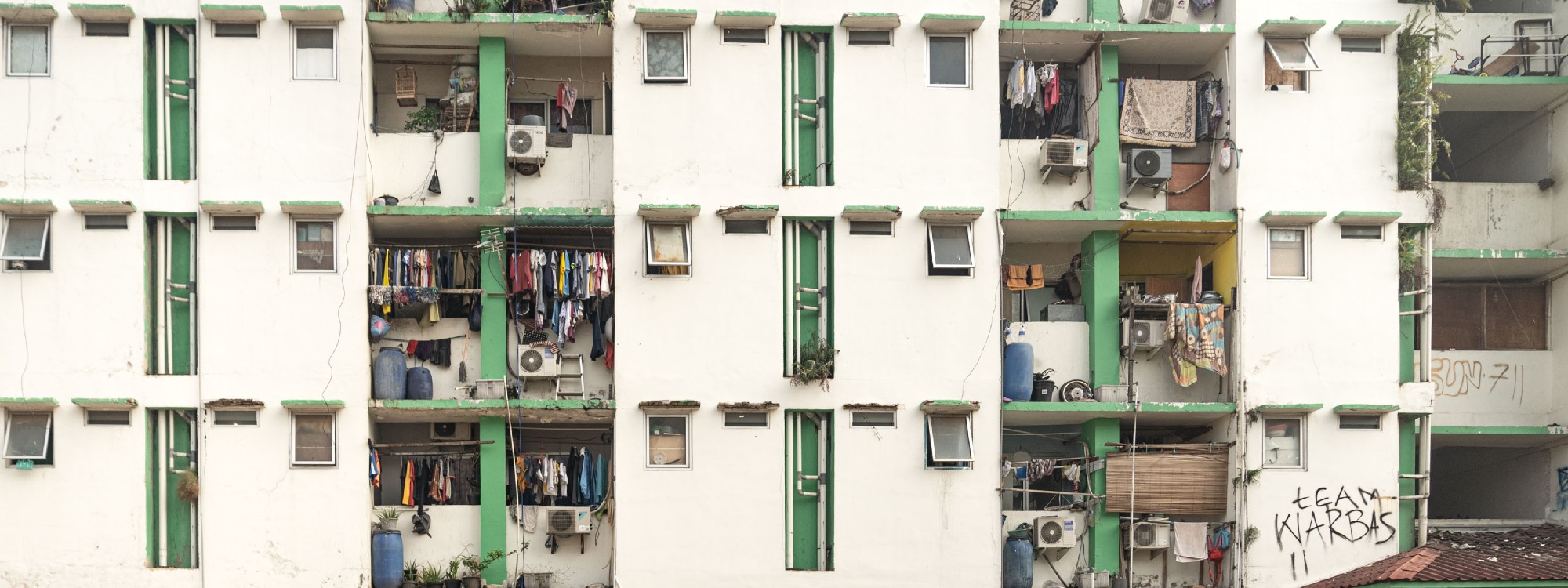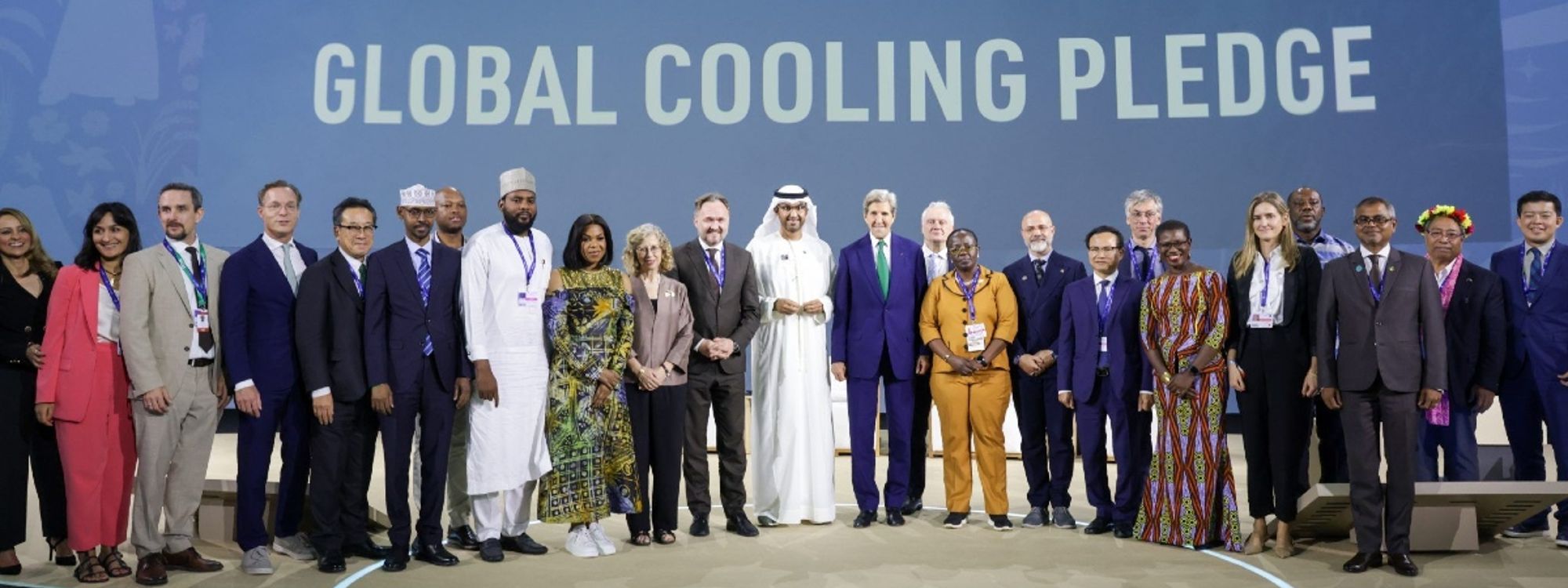K-CEP work highlighted in Apolitical’s 100 Climate Policy Breakthrough list
Earlier this week, Apolitical released their 100 Climate Policy Breakthrough list, which showcases climate policies that have demonstrated the potential for scalability and effective change. The list aims to provide policymakers with an overview of how meaningful climate policy at the local, national, and global level can help reduce greenhouse gas emissions. The list is made up of policies implemented over the last few years and offer an example of “public service at its innovative and inspiring best.”
Of the 100 featured policies, nine focused specifically on cooling and four were projects from the K-CEP community. The policies covered a range of aspects of cooling, from passive cooling and behavior change campaigns, to finance programs and efficiency standards.
“It’s clear that we cannot solve the climate crisis without addressing cooling,” said K-CEP Executive Director, Jessica Brown. “K-CEP, our partners, and the wider climate action community are making great strides to ensure that efficient, climate-friendly cooling is realized as a major climate mitigation strategy.”
By transitioning to efficient, climate friendly cooling, not only can we improve the lives of millions of people, but we can also cut global warming and secure huge financial savings.
We’re proud to see the work of K-CEP partners being recognized in Apolitical’s 100 Climate Policy Breakthrough list:
Million Cool Roofs Challenge
The Million Cool Roofs Challenge is a global initiative aiming to accelerate access to affordable, sustainable cooling through rapid deployment of cool roof materials. The challenge is a collaborative effort from K-CEP, the Global Cool Cities Alliance, Sustainable Energy for All (SEforALL), and Nesta Challenges.
The project has given $100,000 grants to ten teams to deploy cool roofs in their country. An addition $750,000 will be awarded to the team that has demonstrated the best sustainable and transferable model for rapid deployment of cool roofs.
Rwanda’s ‘Coolease’ Scheme
Rwanda’s ‘Coolease’ finance program, one of the first of its kind in Africa, will enable suppliers and consumers of air conditioning and refrigeration products to transition to the latest technology without the high upfront investment.
Funded by K-CEP in conjunction with UNEP and BASE, Coolease embraces the concept of ‘cooling as a service’ (CaaS), in which consumers effectively rent cooling appliances from technology providers. The providers are responsible for installation and maintenance of the equipment, which they can remove if the lessee defaults on payments. The policy transfers responsibility for efficient systems to the provider, making it easier and cheaper to replace old models. It also combats the challenge of high initial costs, making it easier for consumers to choose more climate-friendly option, in turn reducing the cooling sector’s greenhouse gas emissions and increasing access to efficient, climate-friendly cooling.
Efficient Cooling Standards in Kenya
The Kenyan government is working with K-CEP and CLASP to enact strong minimum performance requirements for refrigeration and air conditioning products to try and mitigate their climate damaging effects as the market grows over the next decade.
In April 2019, the performance standards came into effect, requiring an improved efficiency level of at least 11% and a regulation of ozone-damaging hydrofluorocarbons (HFCs). The new standards are expected to eliminate 73% of the least efficient air conditioner models from the market. The regulations are already showing a strong positive effect on the import market.
Nature-Based Cooling in Medellín
Medellín’s ‘Green Corridor’ project targets air pollution, the urban heat island effect, and public transport with one solution: nature. The increase of green space has benefited the local economy through training and job creation, and public health outcomes from reduced air pollution and improved mental health. The city has seen temperatures fall by 2-3°C, ensuring significant energy reductions from reduced artificial cooling. So far, they’ve planted over 8,300 trees and 350,000 shrubs.
The other cooling policies include:
- The Global Cooling Prize: The Global Cooling Prize has the goal to find a cooling solution that will mitigate 0.5°C of global warming by 2100.
- NYC’s CoolRoofs Program: The NYC CoolRoofs program has coated over 10 million square feet of rooftop with reflective coating, reducing cooling costs, greenhouse gas emissions, and the urban heat island effect.
- Sydney’s Road to a Cooler City: Sydney is combatting the urban island heat effect by focusing on cooling its streets. The lighter road surfaces have the potential to decrease surface temperatures by as much as 14°C.
- The CoolBiz Campaign: The CoolBiz campaign is reported to save between 1 and 3 million tons of CO2 every summer in Japan by encouraging small changes in behavior to reduce the need for mechanical cooling.
- Delaware’s Cool Switch: Delaware’s proposed ‘Cool Switch’ policy incentivizes non-residential consumers to switch to low-impact methods of refrigeration.
Image source: Ashden

